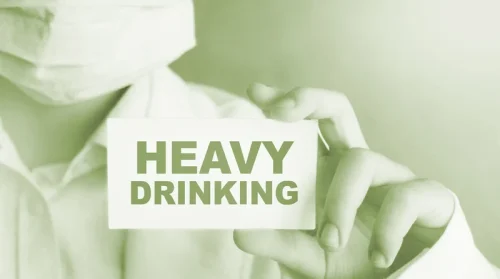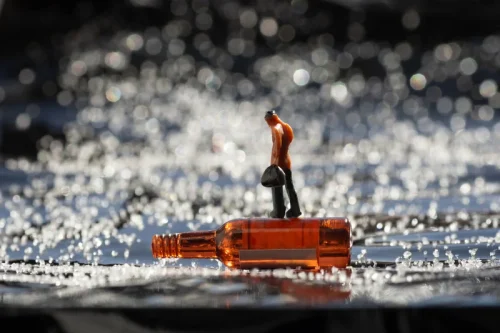
Typically, when someone is buzzed, their behavior has been slightly altered and their thinking process has been slightly impaired, but overall, their intoxication level is relatively mild. The amount of alcohol it takes to get you buzzed depends on a variety of factors including your body size, how fast you are drinking, how high the alcohol content is, your Alcoholics Anonymous gender, and your drinking tolerance. The feeling of a buzz may slightly vary from person to person, as well as the drink that is being consumed.

What does being buzzed/getting drunk feel like?
I’ve had one and a half glasses of it so far, and I’m unsure if I’m feeling the effects of it at the moment. I’m relaxed and kinda mellowed out, but that could just be all in my head. Typically, one standard drink in the United States contains 14 grams of alcohol, which can be found in one 12-ounce beer, one 5-ounce glass of wine, or one 1.5-ounce shot of liquor. When a person drinks, the alcohol is absorbed into their bloodstream through their stomach and small intestine, causing their BAC to increase. You might find that you’re more comfortable starting conversations with strangers or that you’re more willing to share personal information with people you just met.
Do you get buzzed or tipsy first?
Furthermore, drinking on an empty stomach or drinking in a group can also compound the effects of alcohol quicker, allowing a person to get a buzz faster. Generally, a buzz from alcoholic beverages can last anywhere from 30 minutes to several hours, depending on the factors above. Therefore, if someone is feeling a buzz as a result of drinking, this does not necessarily mean they are drunk and should not be taken to mean the person is impaired or altered in any significant way.
Avoiding Outrage Fatigue while Staying Informed

It occurs when a person consumes alcohol and experiences the initial effects before reaching a full state of drunkenness. The buzzed state is typically characterized by a sense of relaxation and lowered inhibitions. Assuming you had a lot to drink, your liver may still be processing the alcohol even 12 hours later. While you may feel that you have sobered up, what does being drunk feel like you could still have a blood alcohol concentration (BAC) that is above the legal limit for driving. In fact, even a small amount of alcohol can affect your ability to drive safely.
That really depends on a few variables, such as a person’s size, gender, food intake prior to drinking, alcohol tolerance, and the type of alcohol being consumed. Generally, the higher the alcohol content of the drink, the faster it will take to start feeling its effects. Understanding the distinction between being buzzed and being drunk is essential for responsible alcohol consumption. While being buzzed refers to a milder state of intoxication, being drunk signifies a higher level of impairment.

Science reveals why we instantly bond with certain people.
When more specific topics of general interest gain attention, they can remain popular in conversations and media coverage for weeks or even months. But food coma is ten times as worse than usual because you are wasted. The cabbie wakes you up and you stumble up your stairs and into your bed, destroying everything in your path. You do not care if your buddy has got work in the morning or if your sister has to get home to the babysitter — NO!
The difference between buzzed and drunk lies primarily in the level of alcohol intoxication present. When a person is buzzed, they are considered to be under the influence of alcohol, but not to the point of drunkenness. The most common way to tell if you have a buzz from drinking alcohol is to observe how you behave.
What is The Difference Between Buzzed & Drunk?
- While you may feel that you have sobered up, you could still have a blood alcohol concentration (BAC) that is above the legal limit for driving.
- With just five minutes of leisurely walking, study participants saw blood sugar spikes after a meal reduced by almost 60%.
- There are several factors that can contribute to why some people feel weird for an extended period after drinking.
- It’s crucial to understand that alcohol affects everyone differently, and the effects can be unpredictable.
- However, it’s worth noting that everyone is different, and the amount of alcohol that it takes to reach that point will vary.
It usually refers to feeling some effects of the alcohol, like being happier or less inhibited, but not to the point of impairment or severe intoxication. Being drunk, on the other hand, is considered a heavy dose of alcohol and will lead to feelings of extreme tipsiness and significant impairment. Drunkenness can also lead to various other symptoms such as slurred speech, disorientation, and impaired judgment. Many people enjoy consuming alcohol in moderation for recreational purposes. However, understanding the difference between feeling “buzzed” versus “drunk” is important for staying safe and making responsible choices.
- Making responsible decisions and prioritizing personal safety is paramount when consuming alcohol.
- This can be dangerous — even fatal — if you choke on your vomit or become critically injured.
- This can be anything from mild relaxation and a pleasant mood, to a feeling of confidence and carefreeness.
Signs and Symptoms of Being Drunk
Alcohol smells the most on your breath depending on how much you drink, as well as what type of drinks you choose to enjoy. However, as research about the effects of vaping continues, some general guidelines for recovery time have begun to emerge. The sensation can also be caused by other ingredients in the e-liquid such as caffeine or certain herbs and extracts. Some vapers may be less sensitive to the buzz or may find different strengths of nicotine e-liquid offer different levels of buzz. Generally, newsworthy topics can become a buzz quickly, grow in popularity and then fade away within hours or days.
Additionally, the type of drink consumed can also impact the metabolism rate. For example, a person may metabolize a beer faster than a glass https://ecosoberhouse.com/ of wine or a shot of liquor. This means that your blood alcohol content (BAC) is between 0.03 and 0.12%. To get to this level, it would take about 2-3 drinks over the course of an hour for the average person. If you feel lightheaded, relaxed, or overly talkative, that is a sure sign that you’re beginning to feel the effects of alcohol. If you believe you may be feeling too intoxicated or buzzed, it’s important to drink some water and get some food to help balance it out.
